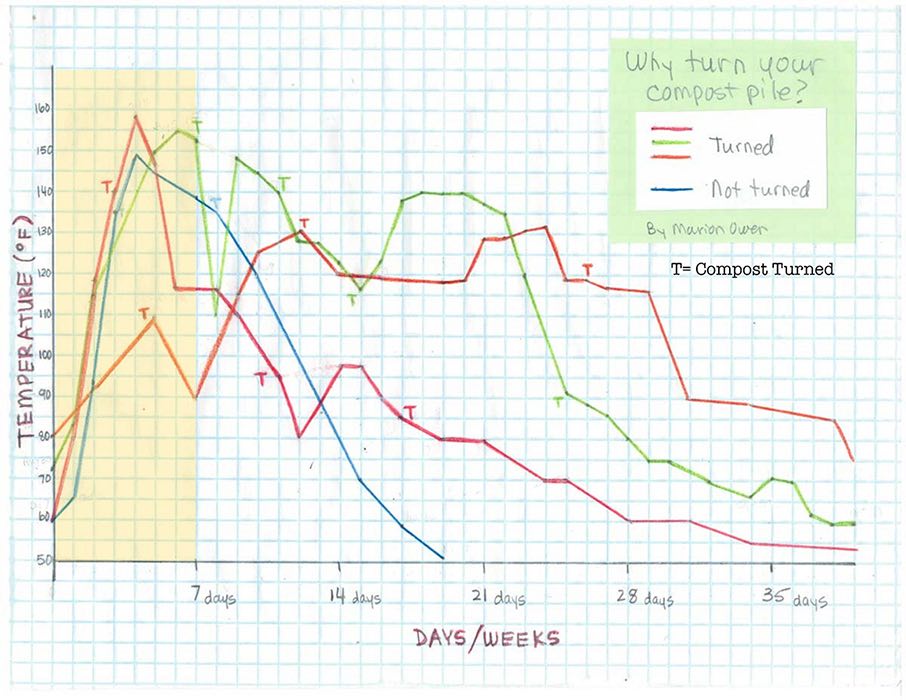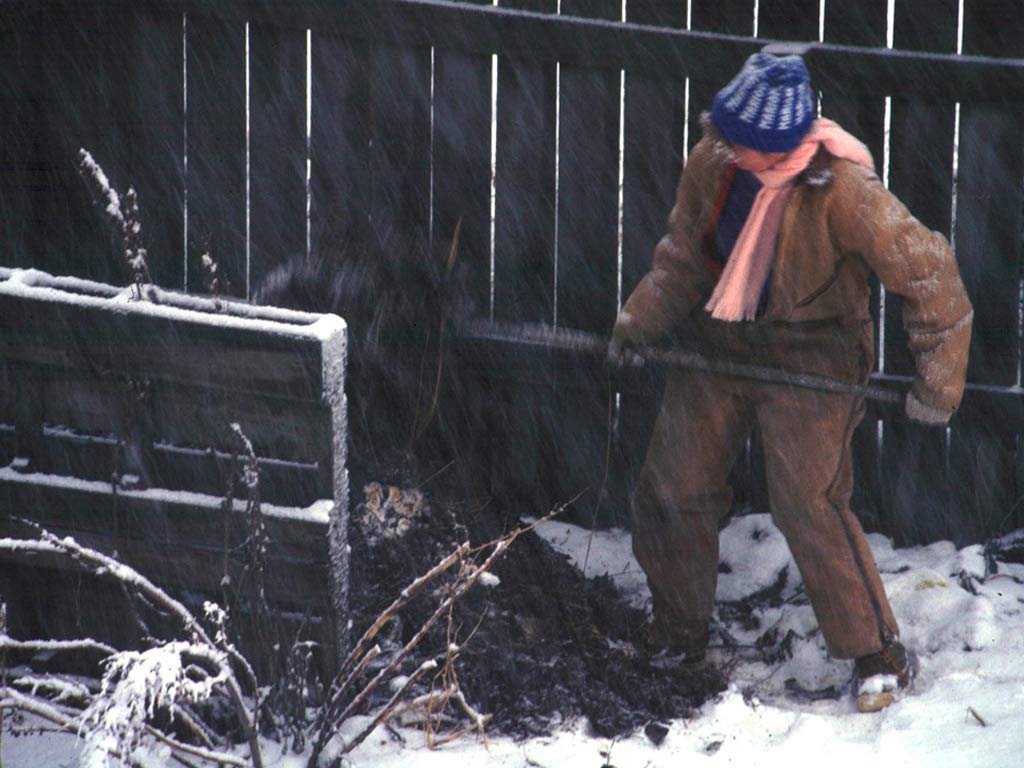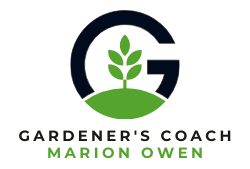Ever wondered how an Alaskan gardener can make compost in just 6 weeks? In this article, Marion shares her 4, tried-and-true methods--refined from 35 years of making compost.
No fluff, no regurgitated theories, just practical steps that work in any garden, anywhere.
So if you ever felt like you were left in the garden without a compost guide that everybody else got, fear not. These composting tips will help you manage kitchen scraps and other waste, and nourish your garden. Best of all, you'll see amazing results in your plants.
Composting is a magical process that turns kitchen scraps and garden waste into nutrient-rich soil. Marion Owen, an experienced composter from Kodiak, Alaska, has honed her composting skills, braving the challenges of a cold climate. In this article, we'll delve into Marion's wealth of knowledge and discover her secrets to achieving finished compost in just six weeks.
Here is Marion's step-by-step composting formula to help you get finished compost in 6 weeks. (For more detailed instructions, watch her video. She goes through them in a simple, easy to understand manner, workshop style).
1.Gather the Right Ingredients
Proteins: Grass clippings, animal manure, seaweed.
Carbohydrates: Straw, cardboard, leaves.
2. Thoroughly Mix the Ingredients
Avoid layering and create a well-mixed pile for optimal decomposition.
Maintain Moisture and Aeration:
3. Add water as needed
Cover the pile to retain proper moisture content and heat; and protect from excessive rain.
4. Turn Frequently for Faster Composting
Turn the pile to promote airflow and microbial activity. TIP: Follow a turning schedule, which Marion proviespecially during the initial stages.
Composting 101
Embracing the Power of Compost:
Marion Owen firmly believes that composting is the cornerstone of a thriving garden. According to Marion, "Compost is the single most important thing you can do for your garden. When you have enough of it, you won't need much of anything else." Compost enriches the soil, improves its structure, and provides vital nutrients to plants.
Simplifying the Composting Process:
Marion's approach to composting is refreshingly simple. She emphasizes the importance of nourishing the hard-working microbes, stating, "Their basic needs include food, water, and air. Nourish them, and they will do the work while you sleep." Marion's method cuts through the complexity often associated with composting, making it accessible to beginners and experienced gardeners alike.
Gathering the Right Ingredients:
To create a successful compost pile, Marion advises gathering a combination of proteins and carbohydrates. Proteins can include grass clippings, animal manure, and seaweed, while carbohydrates encompass straw, cardboard, and leaves. Marion stresses, "The exact amount of nitrogen and carbohydrates is not critical. Just find a combination of ingredients that support the bacteria, fungi, and the overall process."
Building the Compost Pile:
Marion shares her secrets to building a thriving compost pile. She recommends creating a suitable home for the microbes by using an enclosure that's at least three by three by three feet in size.
Marion's hands-on experience taught her that a larger bin provides enough mass to generate sufficient heat. She also advises against randomly tossing materials, suggesting a thorough mixing of ingredients to avoid matting or impermeable layers.
Watering and Turning:
Compost piles are often left to chance in the corner of one's yard. Thing is, watering the compost pile is crucial to maintaining the right moisture levels and hence, getting the pile to get hot and stay hot!
Below is Marion's temp-time graph she created from data collected from four different compost piles.
Within five days, all four batches reached 140 to 150 degrees F.

Marion suggests adding water as needed and covering the pile to protect it from excess rain or drying out. Regular turning is another vital step to promote microbial activity and maintain proper airflow. Marion recommends a turning schedule, highlighting its significance: "Complete and frequent turning exposes the materials to air and speeds up the composting process."
And Finally...
Marion Owen's expertise in composting has transformed the way we approach this essential gardening practice. Her practical tips and straightforward approach make composting easy to understand. As Marion says, "You don't have to get it perfect; you just have to get it going."
Remember, if you ever felt like you were left in the garden without a compost guide that everybody else got, fear not. These composting tips will help you manage kitchen scraps and other waste, and nourish your garden. Best of all, you'll see amazing results in your plants.
Dive in and embark on the journey of creating compost-- from Alaska with love!
Photo below: Marion turning her first compost pile in 1985. Note the pink scarf. To hear Marion's story, be sure to watch the video.

Why Your Compost Doesn't Get HOT and 10 Easy Ways To Fix It
Gardeners tell me there's nothing more frustrating than to invest tons of time and energy into making compost, only to have it turn into a soggy, smelly mess. Or dry out altogether so it just sits there.
That's why I created this guide: To help you assess your compost and then apply solutions so you can get your compost pile back on its feet.
Take a moment to imagine a greener lawn, tastier veggies, and a garden that's a made-in-heaven dream to maintain.
With Marion's guide you can get finished Compost in only Six Weeks!
Who is Marion Owen?
Learn the fine art of nurturing your dream garden using organic methods that have been fine-tuned over 35 years by Marion Owen, New York Times bestselling author.
Gardening techniques that have been proven to work by Marion's students longing for their own dream garden in landscapes as diverse as North America, India, Europe, UK and Australia.
Finally, you can throw away all those harsh chemicals, as Marion only teaches methods that are in tune with Mother Nature!
Marion Owen's approach to fulfilling your dream garden will save you hundreds of dollar. At the same time bring natural vitality to you, your family and the planet.
Start to grow flowers, herbs and vegetables using a methodology in harmony with the natural environment.

Enjoy this article? You might also enjoy these:
